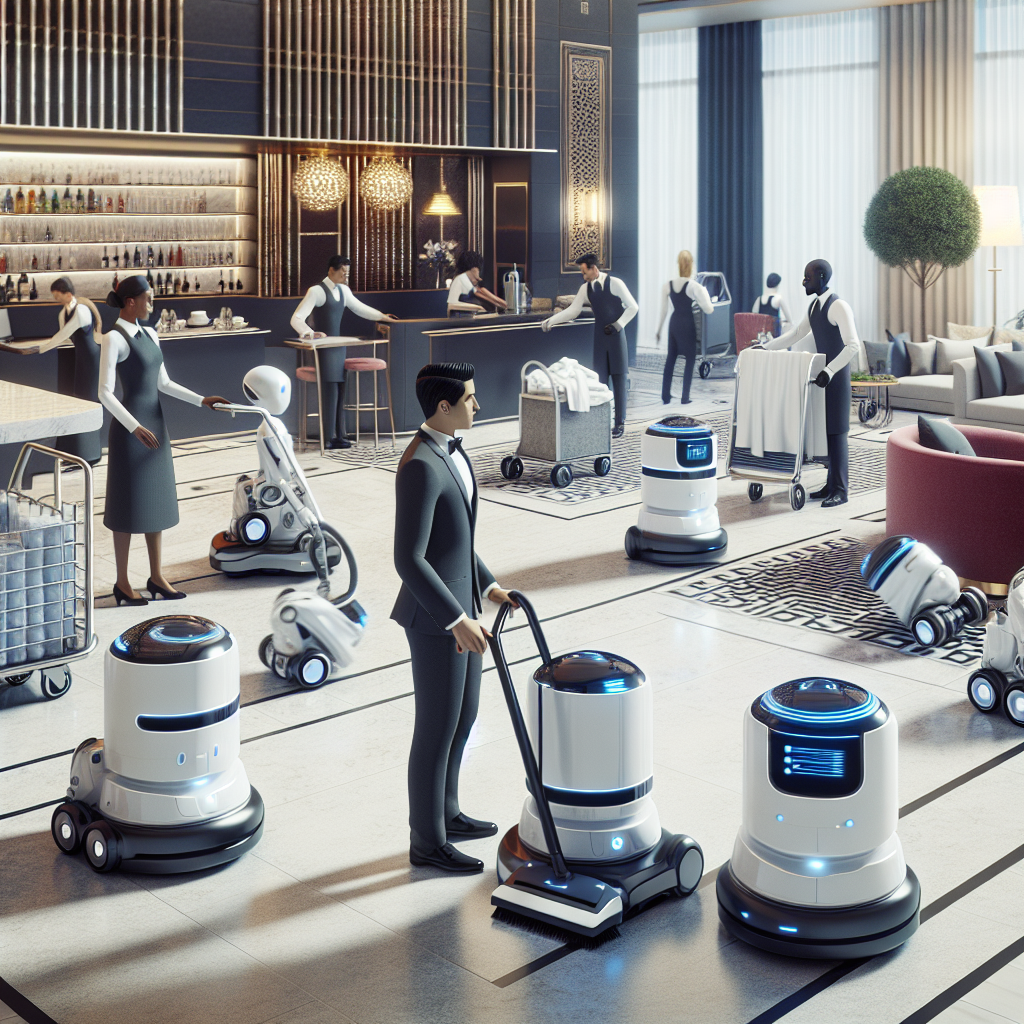AI and Robotics: Improving Efficiency and Productivity in Housekeeping Operations in Hotels
In the hospitality industry, efficiency and productivity are key factors that can make or break a hotel’s success. One area where these factors are particularly important is housekeeping operations. With the rise of AI and robotics technology, hotels are now able to streamline their housekeeping processes and improve overall efficiency in cleaning and maintaining guest rooms. In this article, we will explore how AI and robotics are revolutionizing housekeeping operations in hotels and the benefits they bring to both hotel staff and guests.
The Role of AI and Robotics in Housekeeping Operations
AI and robotics are playing a significant role in transforming housekeeping operations in hotels. These technologies are being used to automate repetitive tasks, optimize cleaning schedules, and enhance overall efficiency in maintaining guest rooms. Some of the key ways AI and robotics are being used in housekeeping operations include:
1. Robotic housekeepers: Robots are now being used in hotels to clean and disinfect guest rooms, common areas, and other hotel spaces. These robots are equipped with sensors and cameras that allow them to navigate autonomously and perform cleaning tasks efficiently. They can also be programmed to follow specific cleaning schedules and protocols, ensuring consistency in cleaning standards across the hotel.
2. AI-powered cleaning systems: AI technology is being used to analyze data and optimize cleaning schedules based on factors such as room occupancy, guest preferences, and staff availability. AI-powered cleaning systems can help hotels reduce turnaround times between guest check-ins and check-outs, improve room cleanliness, and minimize waste of resources.
3. Virtual assistants: Virtual assistants powered by AI technology are being used in hotels to streamline communication between housekeeping staff, front desk personnel, and guests. These virtual assistants can provide real-time updates on room status, guest requests, and cleaning schedules, allowing staff to coordinate their efforts more effectively and respond to guest needs promptly.
4. Predictive maintenance: AI technology is also being used to predict equipment failures and maintenance needs in hotel facilities. By analyzing data from sensors and monitoring systems, AI algorithms can identify potential issues before they escalate, allowing hotel staff to address them proactively and minimize downtime.
Benefits of AI and Robotics in Housekeeping Operations
The integration of AI and robotics in housekeeping operations offers a wide range of benefits for hotels, staff, and guests. Some of the key advantages of using these technologies include:
1. Improved efficiency: AI and robotics can automate repetitive tasks, optimize cleaning schedules, and streamline communication between staff members, leading to improved efficiency in housekeeping operations. By reducing manual workloads and minimizing errors, these technologies can help hotels save time and resources while maintaining high cleaning standards.
2. Enhanced productivity: With AI and robotics handling routine cleaning tasks, housekeeping staff can focus on more complex and guest-centric activities, such as personalized room setups, responding to guest requests, and providing exceptional service. This can lead to increased productivity among staff members and higher guest satisfaction levels.
3. Consistent cleaning standards: Robots and AI-powered systems can follow predefined cleaning protocols and schedules with precision, ensuring consistent cleaning standards across all guest rooms and hotel spaces. This consistency can help hotels maintain a positive reputation for cleanliness and hygiene, which is crucial for attracting and retaining guests.
4. Cost savings: By automating cleaning tasks and optimizing resource usage, AI and robotics can help hotels reduce operational costs associated with housekeeping operations. These technologies can also minimize waste of cleaning supplies, energy, and water, leading to long-term cost savings for the hotel.
5. Improved guest experience: AI and robotics can enhance the overall guest experience by ensuring that rooms are cleaned promptly, requests are fulfilled efficiently, and communication with staff is seamless. Guests are more likely to have a positive impression of the hotel when they see that technology is being used to enhance their comfort and convenience.
FAQs
Q: Will AI and robotics replace human housekeeping staff in hotels?
A: While AI and robotics can automate certain cleaning tasks, they are not intended to replace human housekeeping staff entirely. These technologies are designed to assist and support staff members in their daily tasks, allowing them to focus on more guest-centric activities that require human touch and creativity.
Q: Are AI and robotics safe to use in hotel environments?
A: Yes, AI and robotics technologies used in housekeeping operations are designed to meet safety standards and regulations in hotel environments. These technologies are equipped with sensors and safety features to prevent accidents and ensure smooth operation in guest areas.
Q: How can hotels ensure the privacy and security of guest data when using AI and robotics?
A: Hotels can protect guest data and ensure privacy by implementing strict data security measures, such as encryption, access controls, and regular audits of AI and robotics systems. It is essential for hotels to comply with data protection regulations and inform guests about the use of AI and robotics in housekeeping operations.
Q: What are some challenges hotels may face when implementing AI and robotics in housekeeping operations?
A: Some challenges hotels may face include the initial cost of implementing AI and robotics systems, staff training and adoption of new technologies, and potential resistance from employees who fear job displacement. Hotels should address these challenges by investing in staff training, communicating the benefits of AI and robotics, and involving employees in the implementation process.
In conclusion, AI and robotics are revolutionizing housekeeping operations in hotels by improving efficiency, productivity, and guest satisfaction. By integrating these technologies into their cleaning processes, hotels can streamline operations, reduce costs, and provide a more personalized and consistent experience for guests. As AI and robotics continue to evolve, the hospitality industry can expect to see further advancements in housekeeping operations that enhance overall efficiency and productivity in hotel environments.

